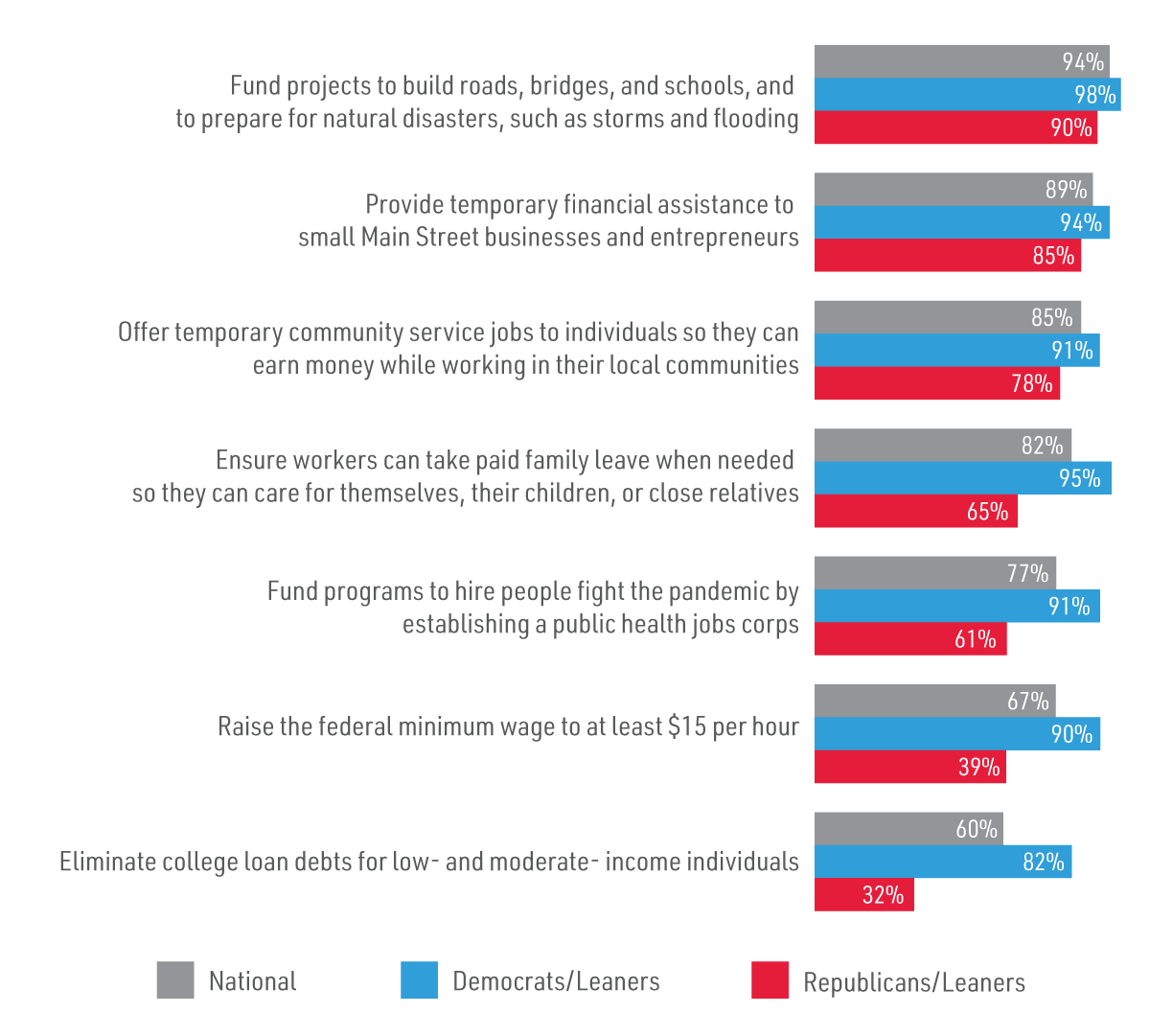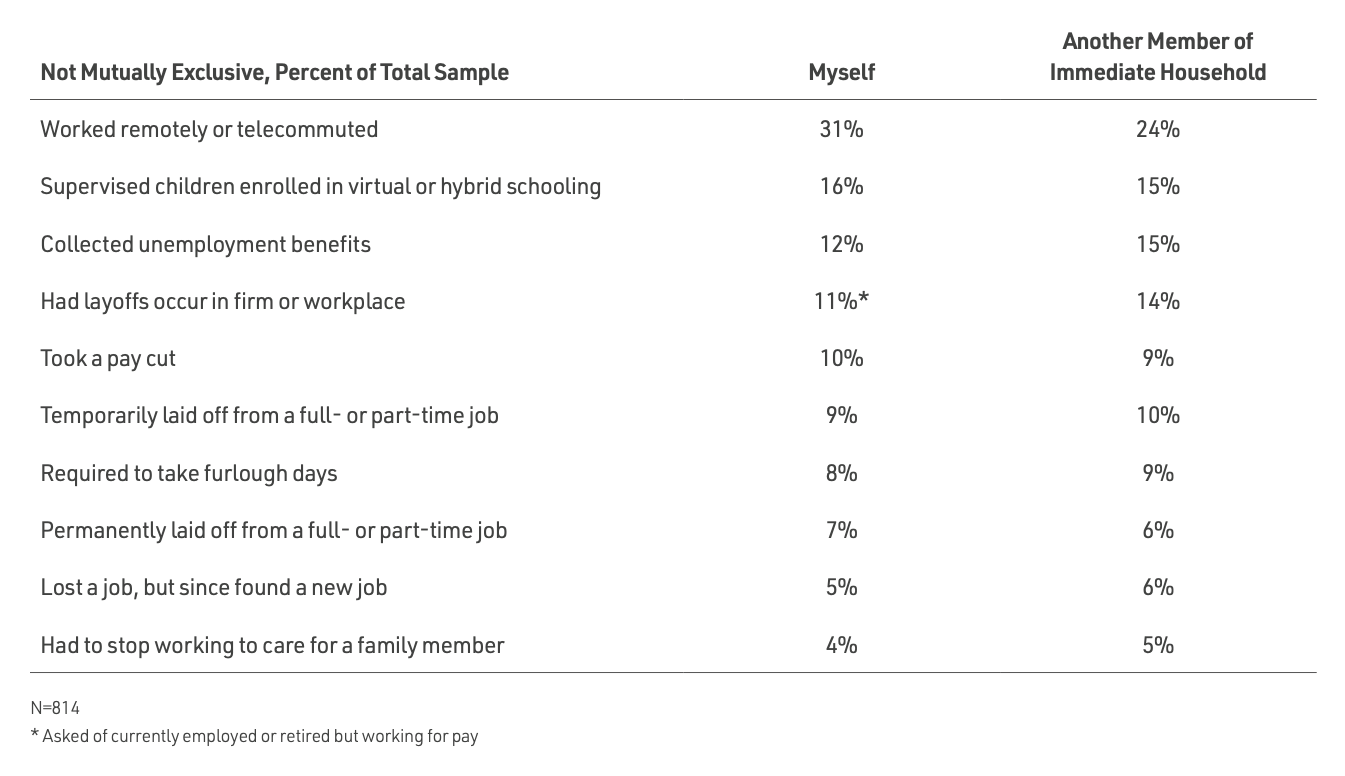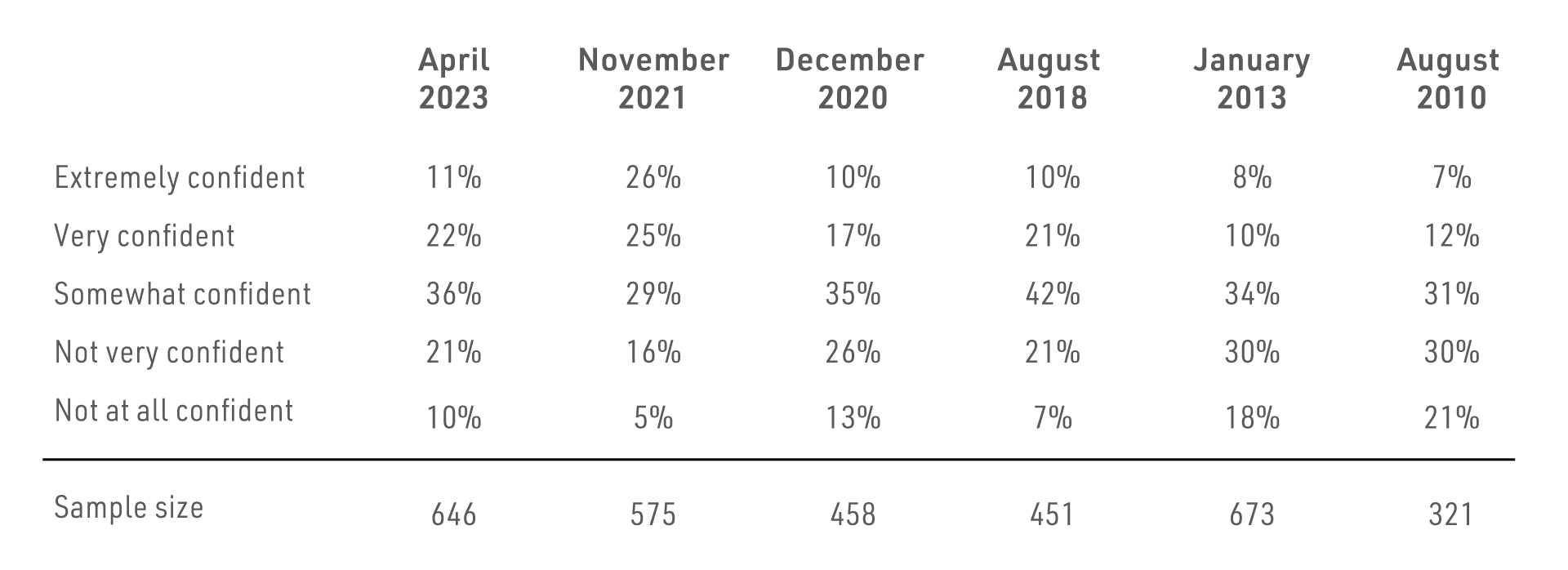Work Trends | Chapter 7
The COVID-19 Recession, Economic Recovery, and Inflation
Several nationally representative studies of American adults were conducted during and after the COVID-19 pandemic and 2020 U.S. presidential election, including two surveys conducted before the election and after President Joe Biden was declared the winner.
Studies
Healing the Wounded Economy and Twin Crises included results from two surveys using fresh samples conducted before and after the November 3, 2020 presidential election. The pre-election survey was fielded online from October 21 to November 1, 2020, with a national probability sample of 810 U.S. residents aged 18 or older. The post-election survey was fielded online from December 4 to 14, 2020, with a national probability sample of 814 U.S. residents aged 18 or older.
What a Difference a (Pandemic) Year Makes and Trends in American Opinions About Jobs were based on a single survey fielded online between November 19 and 21, 2021, to a national probability sample of 1,019 U.S. adults aged 18 or older, including 623 Americans in the labor force who said they were employed full time (working at least 35 hours per week), employed part time, or unemployed and looking for work.
Whipsawed, Precarious, and Pessimistic: Americans’ Changing Views About the Economy and Labor Market During a Decade of Fundamental Change was fielded online between April 7 and 10, 2023, to a national probability sample of 1,026 U.S. adults aged 18 or older.
Key Findings
Americans of all income levels and age groups reported a wide range of impacts of the COVID-19 pandemic on them and their families. Nearly a third reported that they worked remotely during 2020 (31%) and 3 in 10 lived in a household that collected Unemployment Insurance in 2020.
Good or Bad Time to Find a Quality Job, Trend Data, National Sample (percent very concerned about economic indicators)
Click to enlarge
Most Americans said that 2020 was a bad time to find a quality job, similar to January 2013 following the Great Recession. In January 2013, just one quarter of Americans (27%) thought the labor market situation for job seekers was good, a stark contrast from August 2018, but parallel to the sentiment of Americans in December 2020.
Funding for infrastructure projects, aid to small businesses, temporary community service jobs, and paid family leave were supported by large majorities of both political parties in December 2020.
Raising the federal minimum wage to $15 per hour and eliminating college loan debts for low- and moderate-income Americans were less popular policies, though still supported by majorities of Democrats.
Support for Economic Recovery

Click to enlarge
Percent Confidence in Finding New Job, Employed Americans, Trend Data
How confident are you that if you lost or wanted to leave your current job, you could find another job as good or better?
Click to enlarge
When asked how confident they were that they might find a new job if they lost or wanted to leave their current job, working Americans in 2023 were split: 33% were extremely or very confident they would find another job as good or better than their current one, 36% were somewhat confident, and 31% said they were not very or not at all confident. This was an increase from January 2013 but a decrease from November 2021, when 51% of American workers said they were extremely or very confident.
By the Numbers
Fewer than 1 in 10 Americans believed that the political parties would work together to develop strategies to strengthen the economy.
%
Very likely
%
Somewhat likely
%
Not too likely
%



